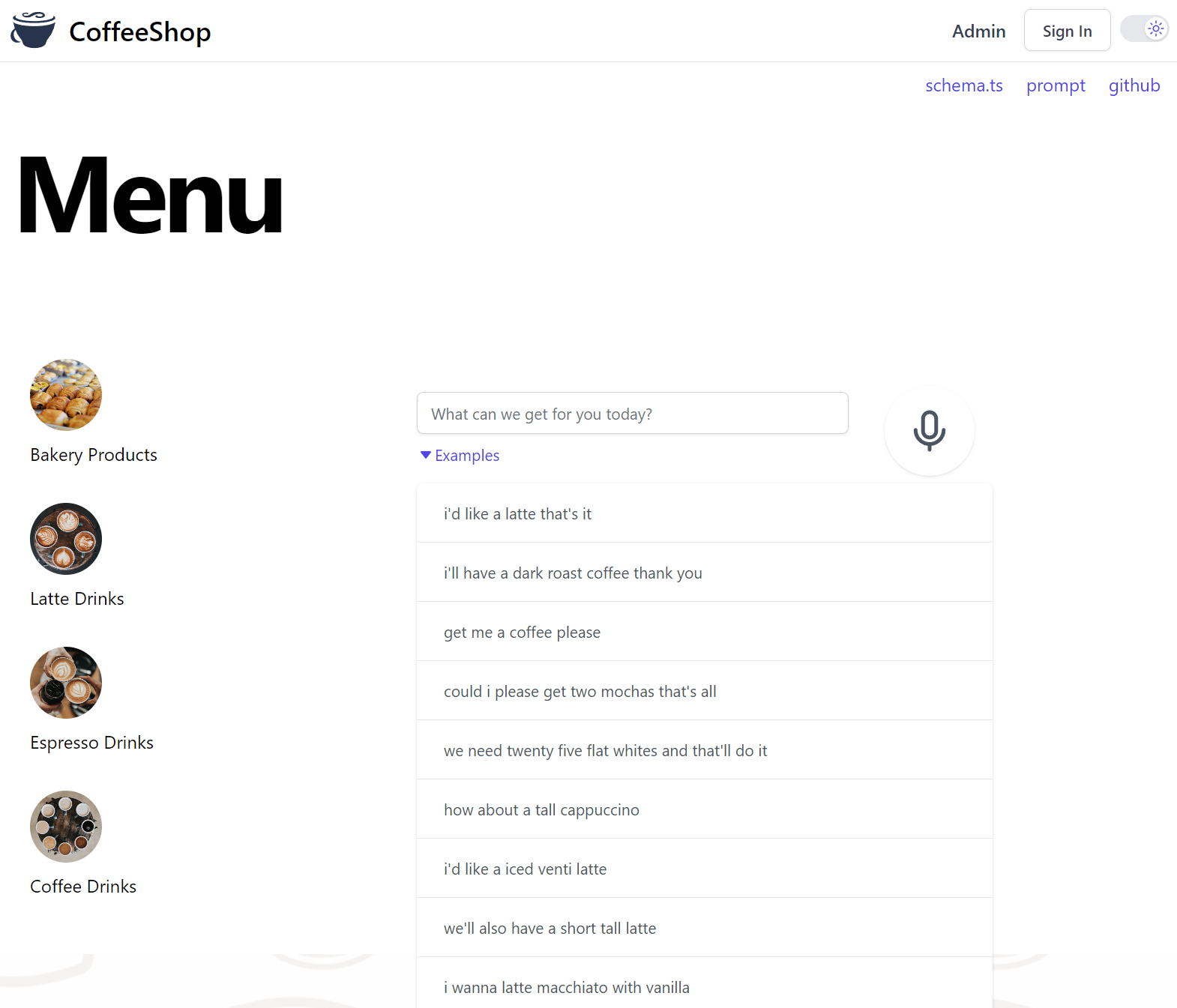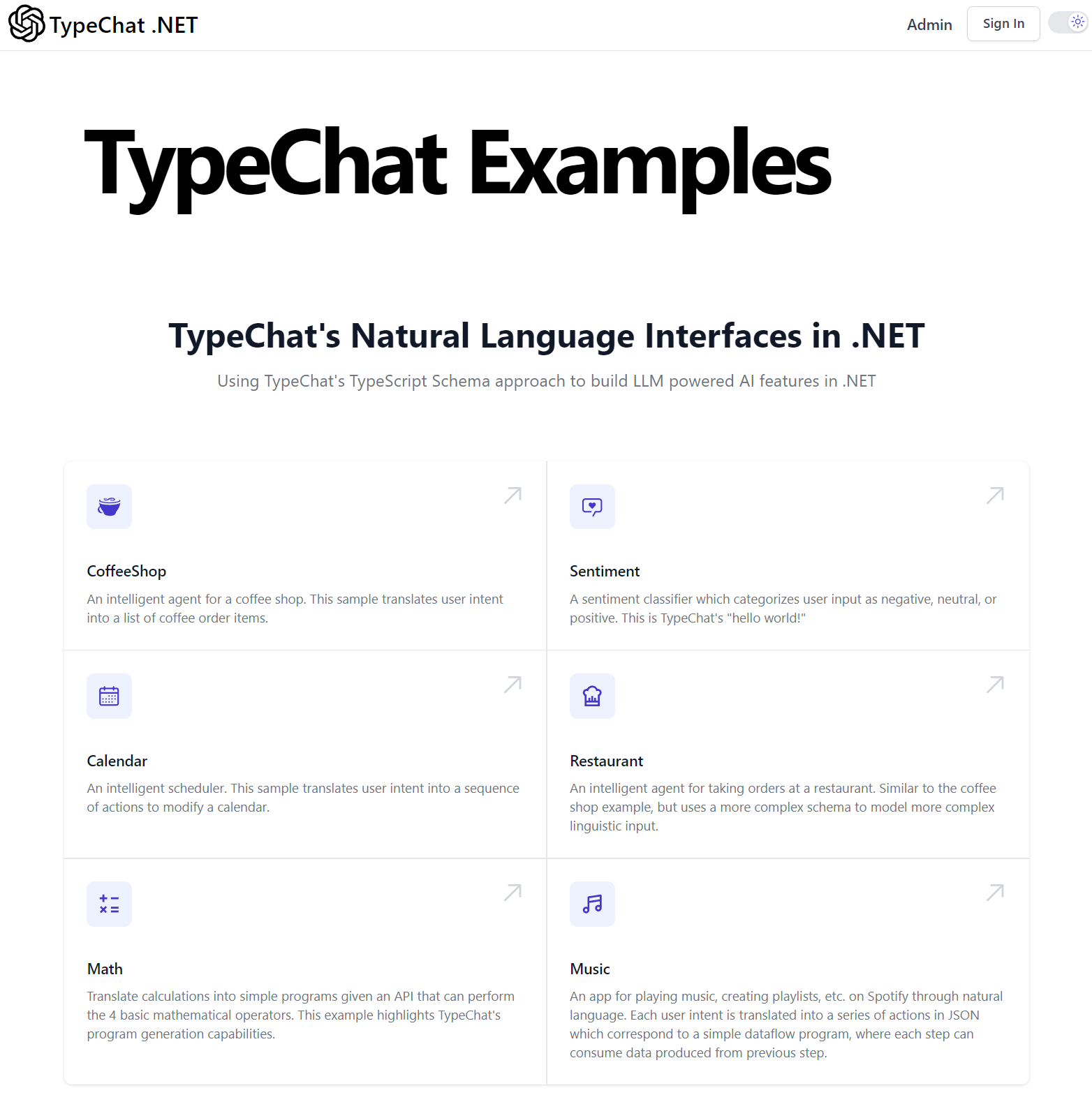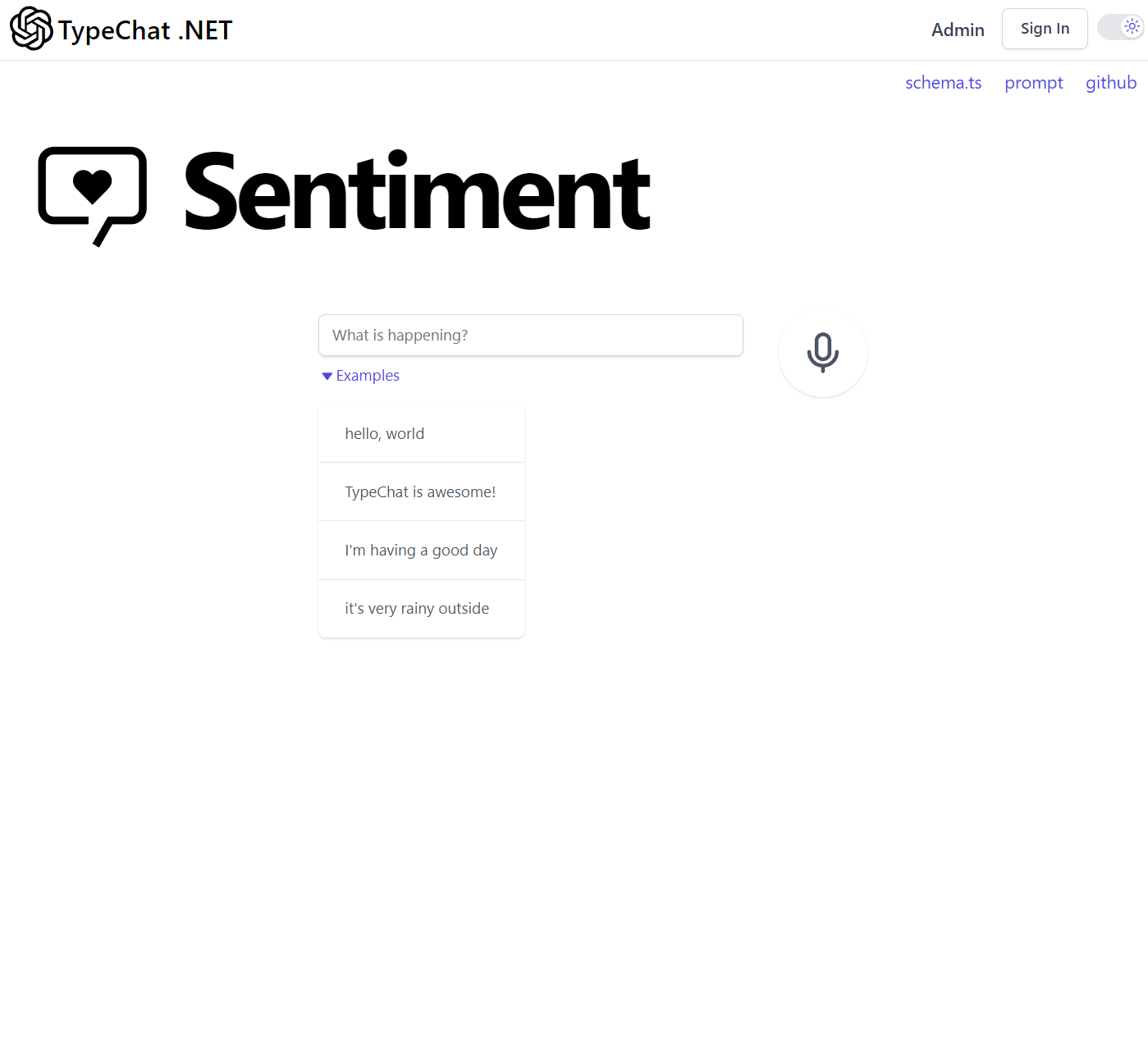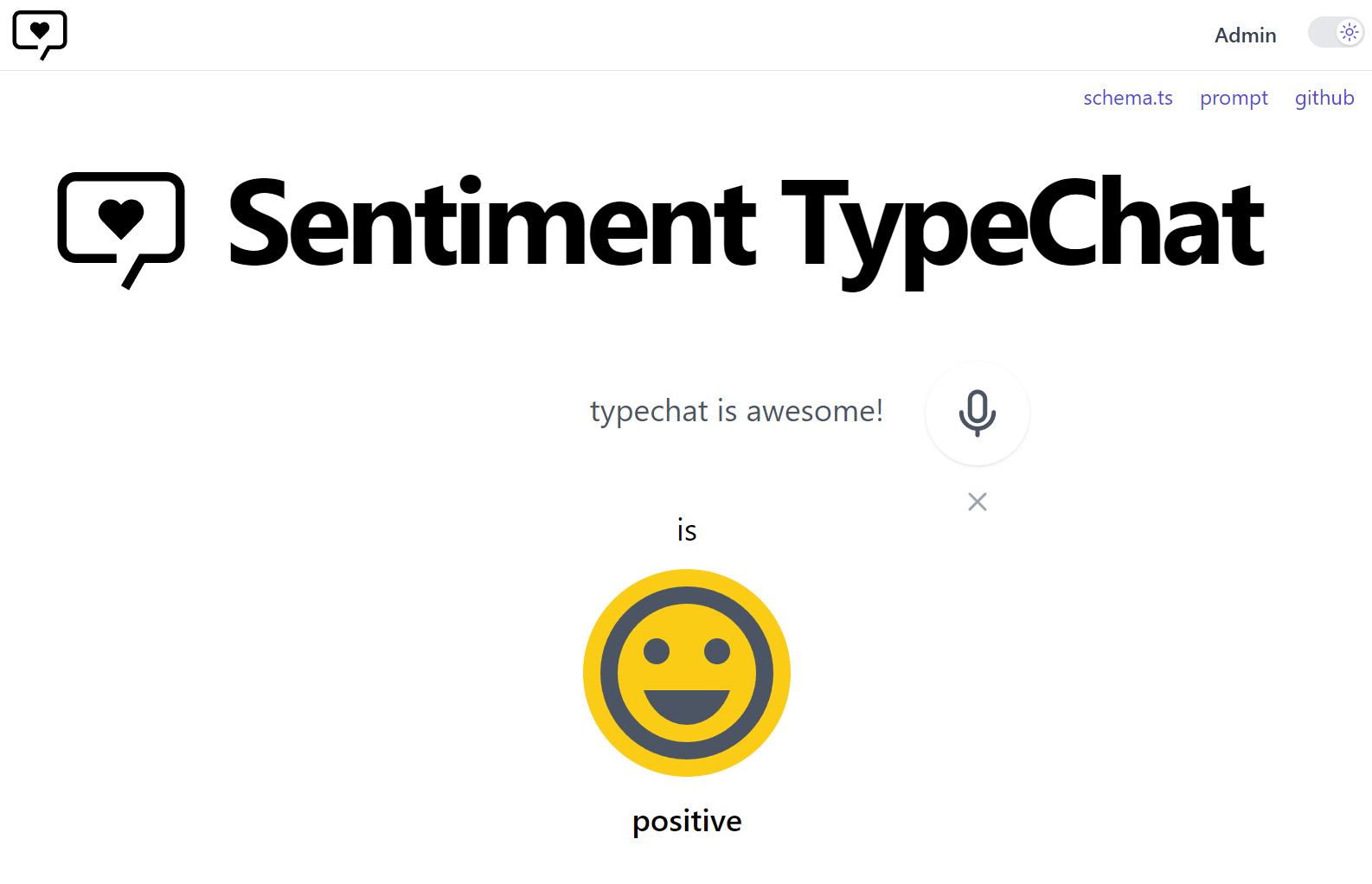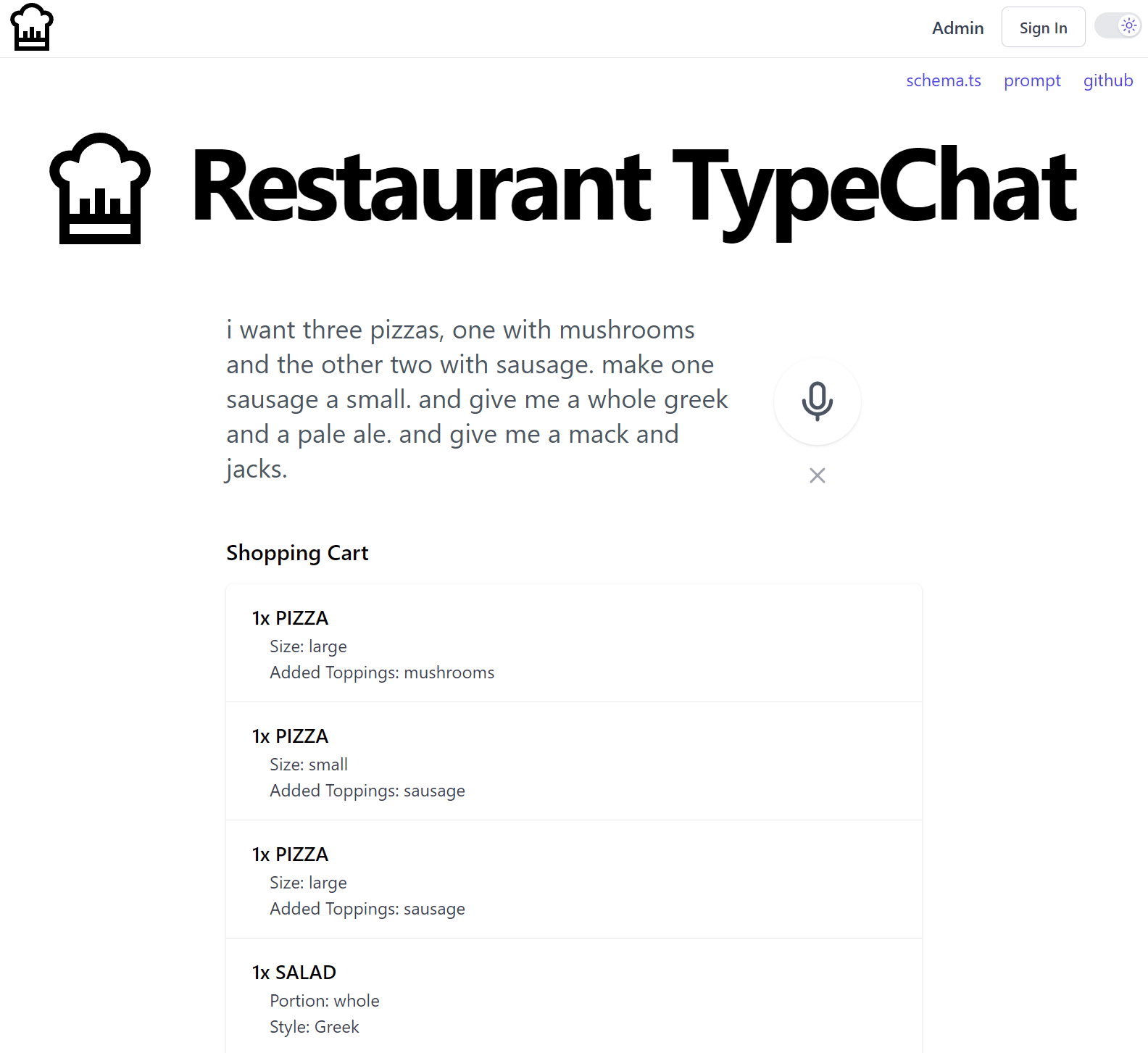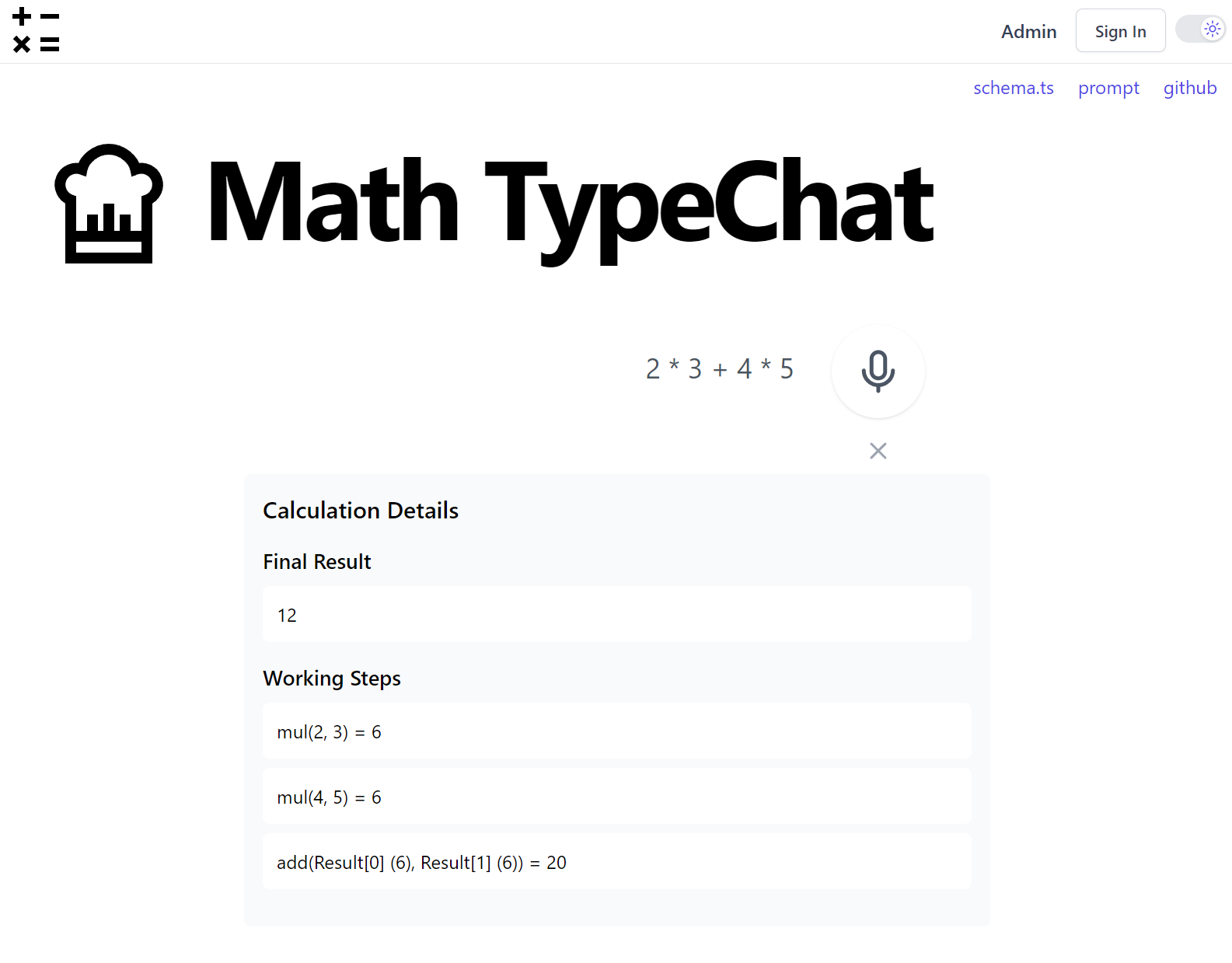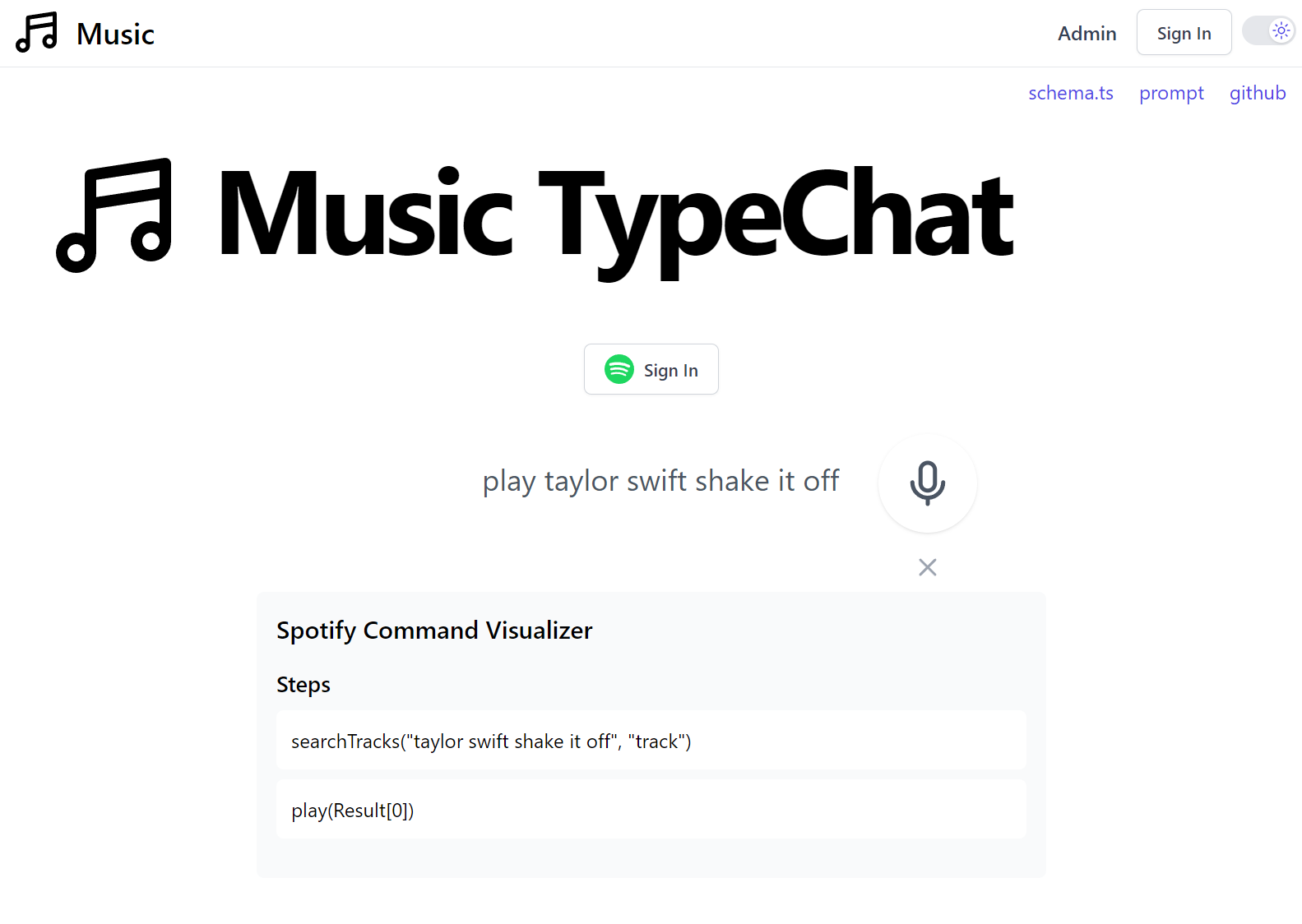All of TypeScript's TypeChat Examples in .NET

To explore how best to add AI features to .NET Apps we first looked at harnessing the reasoning capabilities of ChatGPT by utilizing the Chain-of-Thought technique by constructing sophisticated prompts to guide ChatGPT into desirable actionable responses which we demonstrate in the ChatGPT Meeting Agent demo.
TypeScript's TypeChat
The TypeScript team have sought a simpler approach that instead of relying on engineering sophisticated prompts to instead use TypeScript type's system to define the machine readable model LLMs should return and then if necessary to use TypeScript compiler's Schema validation errors to enable auto correcting prompts to guide ChatGPT into returning valid responses that our App's can understand.
Whilst less ambitious then Chain-of-Thought in trying to leverage ChatGPT's reasoning abilities, it's a simpler and more reliable approach when wanting to add natural language features to your App.
TypeScript's TypeChat library and compiler being written in JavaScript presents challenges in being able to utilize it within .NET Apps. To showcase how best to add TypeChat AI-Powered features into .NET Apps we've recreated TypeChat's CoffeeShop App in .NET which first uses AutoQuery to quickly develop the CoffeeShop Data Models, Typed APIs and Management UI to dynamically generate its TypeScript's schema in:
We then show how to utilize the resulting TypeScript Schema with ChatGPT, which initially uses your choice of 5 different Speech-to-Text providers from OpenAI, GoogleCloud, AWS and Azure to transcribe voice activated commands into text that's then submitted to ChatGPT using TypeChat's prompt to convert the natural language request into the machine readable response defined by the App's TypeScript Schema that is matched against its Database Products to create Item Order requests that are added to the Users Cart in:
CoffeeShop
This results in an example of a working intelligent voice activated agent for a coffee shop which translates user intent into a list of CoffeeShop order items:
All TypeChat Examples
To show the versatility of this approach we've implemented the remaining TypeChat Examples in .NET which in addition to supporting 5 different Speech-to-text providers also supports utilizing a pure .NET approach of generating TypeChat's prompt in C# and using Semantic Kernel to connect with your preferred Chat GPT provider or utilizing node's TypeChat library to interface with ChatGPT where it benefits from TypeScript schema validation and auto-retry of invalid responses with auto correcting prompts.
But as we've discovered in Custom Validation with C# Semantic Kernel you can achieve more effective results with manual validation.
In addition all TypeChat examples supports uploading recordings to your preferred choice of 5 different Storage Providers:
- Local File System
- Google Cloud Storage
- Azure Blob Storage
- AWS S3
- Cloudflare R2
Feel free to explore to explore the different TypeChat examples for the implementation which best suits your use-case.
The source code for all Examples are maintained in a Combined App at:
With a Live Demo of these examples available at:
Individual Examples
If you're only interested in one of the examples for your use-case, simpler examples of each App is available in the individual GitHub Repos below:
- https://github.com/NetCoreApps/CoffeeShop
- https://github.com/NetCoreApps/SentimentTypeChat
- https://github.com/NetCoreApps/CalendarTypeChat
- https://github.com/NetCoreApps/RestaurantTypeChat
- https://github.com/NetCoreApps/MathTypeChat
- https://github.com/NetCoreApps/MusicTypeChat
Descriptions, Screenshots and Links for each TypeChat Example is available below:
Sentiment
A sentiment classifier which categorizes user input as negative, neutral, or positive. This is TypeChat's "hello world!"
Calendar
An intelligent scheduler. This sample translates user intent into a sequence of actions to modify a calendar.
Restaurant
An intelligent agent for taking orders at a restaurant. Similar to the coffee shop example, but uses a more complex schema to model more complex linguistic input.
The prose files illustrate the line between simpler and more advanced language models in handling compound sentences, distractions, and corrections. This example also shows how we can use TypeScript to provide a user intent summary.
Math
Translate calculations into simple programs given an API that can perform the 4 basic mathematical operators. This example highlights TypeChat's program generation capabilities.
Music
An app for playing music, creating playlists, etc. on Spotify through natural language. Each user intent is translated into a series of actions in which correspond to a simple dataflow program, where each step can consume data produced from previous step.
If you Sign In with a premium Spotify Account you'll also be able to use natural language to control what you're listening to:

